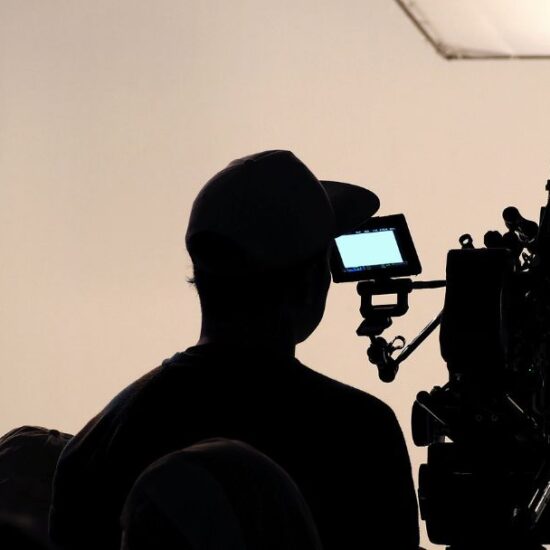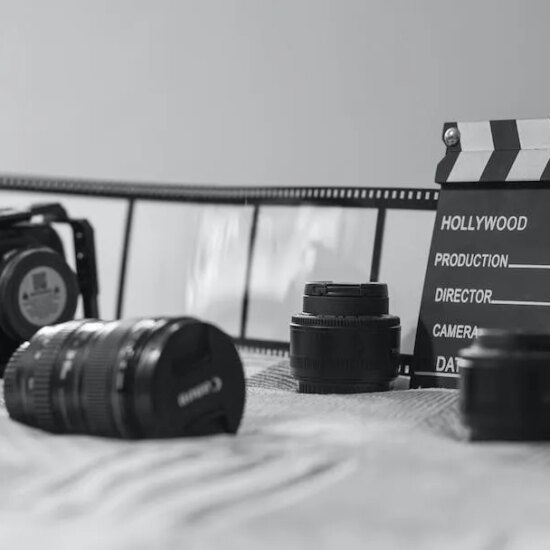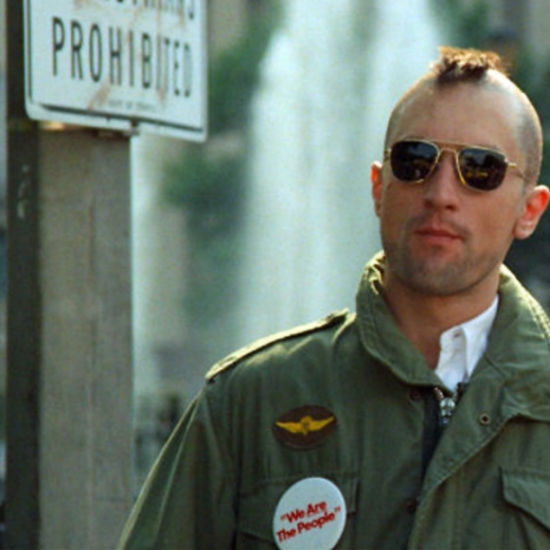
Most filmmakers start their journey with aspirations of being the next Stanley Kubrick or Jane Campion. Over time, however, you may find yourself drawn to a different kind of videography: commercial filmmaking.
Commercial filmmaking can help you build a professional portfolio and is a great way to earn a living. You’ll gain plenty of experience while planning shoots for firms that want to improve their digital marketing presence.
However, there are some major differences between filmmaking for art and filmmaking for commercials.
Why Get Into Commercial Filmmaking?
If you’re a passionate filmmaker, the idea of shooting commercials probably doesn’t fill you with excitement. You don’t want to be confined by a product brief, and would rather write dialogue than shoot panning shots of soda cans. However, commercial filmmaking may be a necessary next step in your career.
Shooting for commercials gives you hands-on experience that you just can’t get in film school. You’re constantly working with stakeholders who need a finished product at the end of the shoot and care little about your personal creative vision.
This sentiment is echoed by director Dominique DeLeon, who says that “commercials really offered that opportunity [to practice]”. DeLeon continues that “limitations make you a better filmmaker,” and that, though humbling, shooting for commercials will make you a more well-rounded filmmaker in the future.
Commercial filmmaking is also a great way to support yourself between creative projects. Budgets vary by shoot, but the average wage of filmmakers is around $38 per hour. This means you can put aside some funds for your own projects and should be able to upgrade your own equipment as you develop a larger clientele.
Commercial Filmmaking as a Genre
Commercial filmmaking can help you earn a decent wage between creative projects. However, you still have to produce high-quality content if you want to succeed and land repeat clients. You can bolster your chances of finding success by understanding the genre of commercial filmmaking.
Start by watching some successful advertisements from the past 5 years. What themes or traits do they have in common? How did they push their theme or message? Which emotions did they strike on?
Focusing on theme and emotion is a great way to create compelling video marketing content, but you still need to align with the company’s vision. As a commercial filmmaker, it’s highly unlikely that you’ll be able to overrule a marketing director or corporate-level decision-maker. Just remember, it’s their project, not yours. You can still create a top-level portfolio even if you have to make a few creative concessions along the way.
Building a Portfolio
As a commercial filmmaker, you have to convince companies that you’re the right person to direct their creative vision. This means you have to build a compelling portfolio with a range of work. There’s no use leaning on your avant-garde film school experience if you’re looking to shoot car commercials and social highlights for restaurants.
Spend some time shooting commonly-seen commercials. Shoot some b-roll of burgers being flipped and a car taking off on an empty road. Put these shots together with an imaginary brand message and overlay a few sample graphics. This will show prospective clients that you offer a range of services and are able to adapt to different products.
When shooting portfolio pieces, try to imagine yourself in the position of a marketing department. B-Roll of an electric vehicle flying down the highway may look good, but they probably want to show off features like driver-assistance technology too. Be sure to highlight product features like adaptive cruise control, as this will show that you’re on the same wavelength as the marketing and sales departments.
Responding to Trends
Commercial filmmaking is all about improving a business’s bottom line. However, the way businesses sell to customers changes all the time. To stay relevant, you have to respond to current trends.
As a commercial filmmaker, use data to inform your decisions. Ethically obtained marketing data is worth its weight in gold, as it’ll give you a clear sense of direction and an objective insight into current trends. Maximize the quality of your data by interviewing a focus group before you start shooting, and adapt your approach based on your findings.
If you don’t have the budget to run data analysis, you can do what all good filmmakers do: copy. This doesn’t mean you should plagiarize another person’s work, but learning from other filmmakers is a great way to understand the market today. Subscribe to big brands like Nike, Apple, and Starbucks and follow their direction.
Conclusion
Commercial filmmaking can feel like a step down if your heart is set on becoming the next big thing. However, shooting for commercials is a great way to bolster your portfolio, earn a decent wage, and gather hands-on experience in the industry. You can even use commercials to fund your passion projects and may find that the overlap between the two helps you find professional and creative success.
Amanda Winstead is a writer from the Portland area with a background in communications and a passion for telling stories. Along with writing she enjoys traveling, reading, working out, and going to concerts. If you want to follow her writing journey, or even just say hi you can find her on Twitter.














